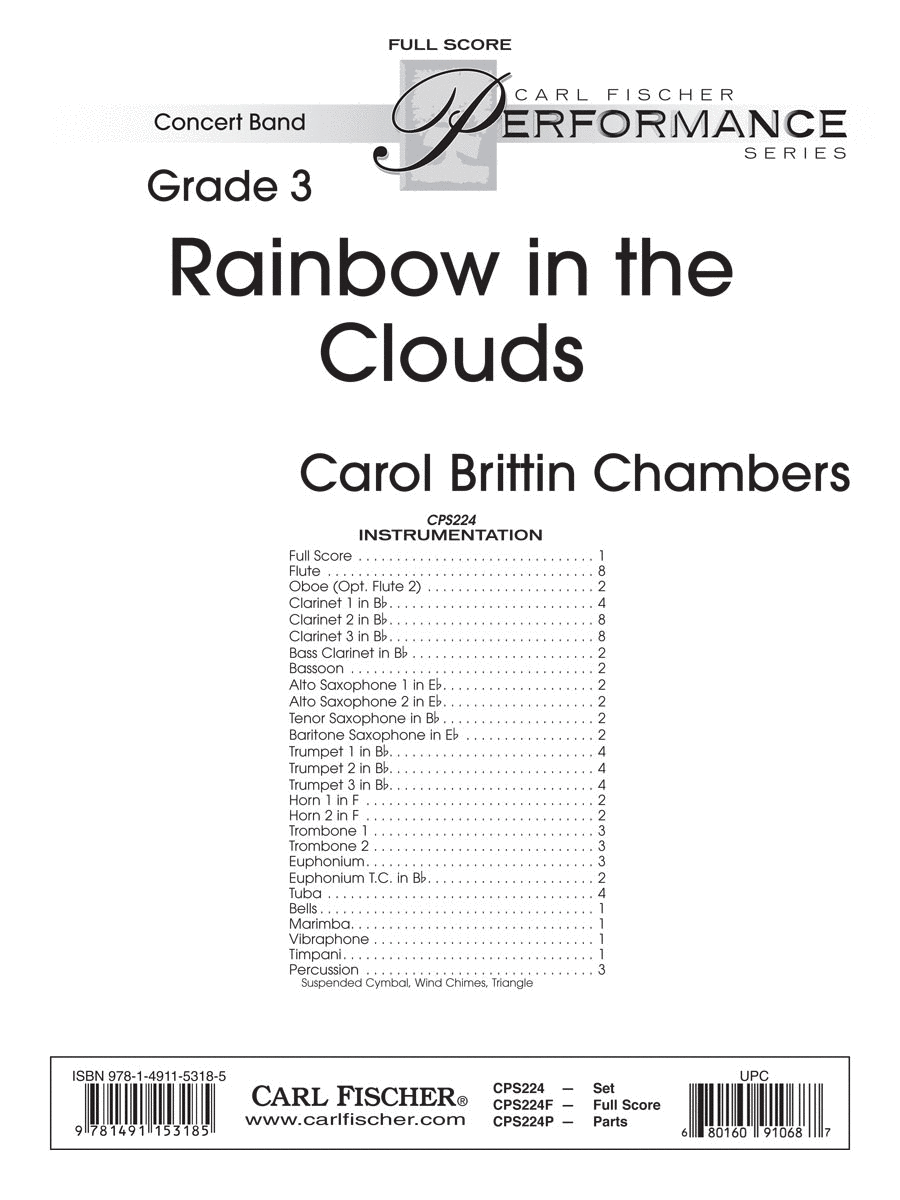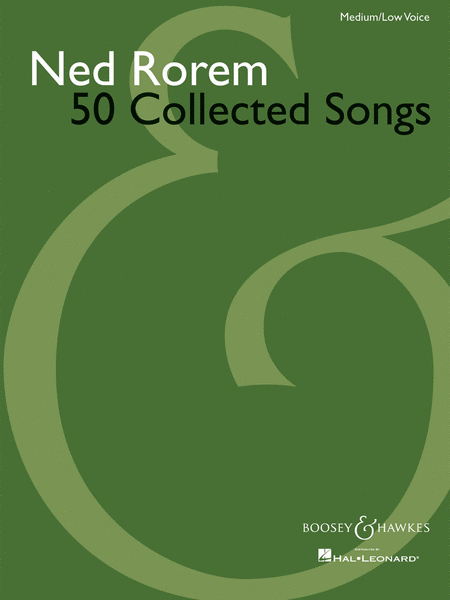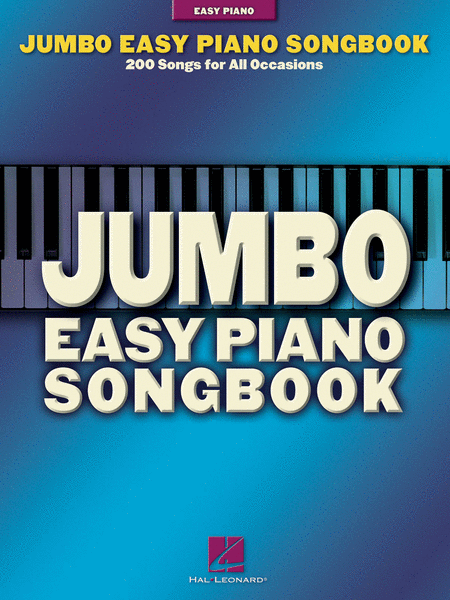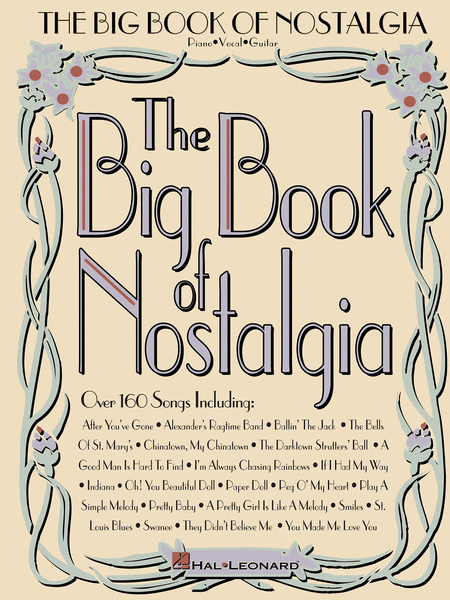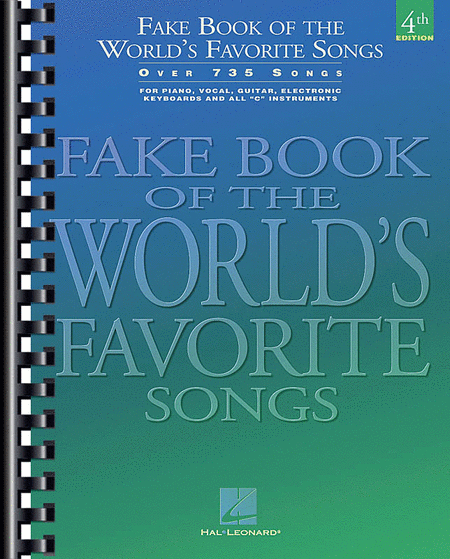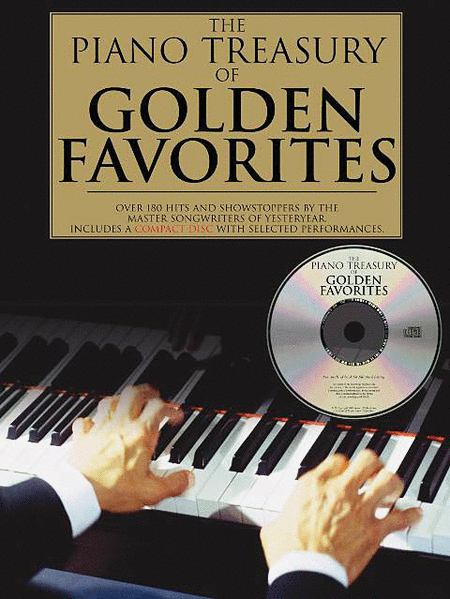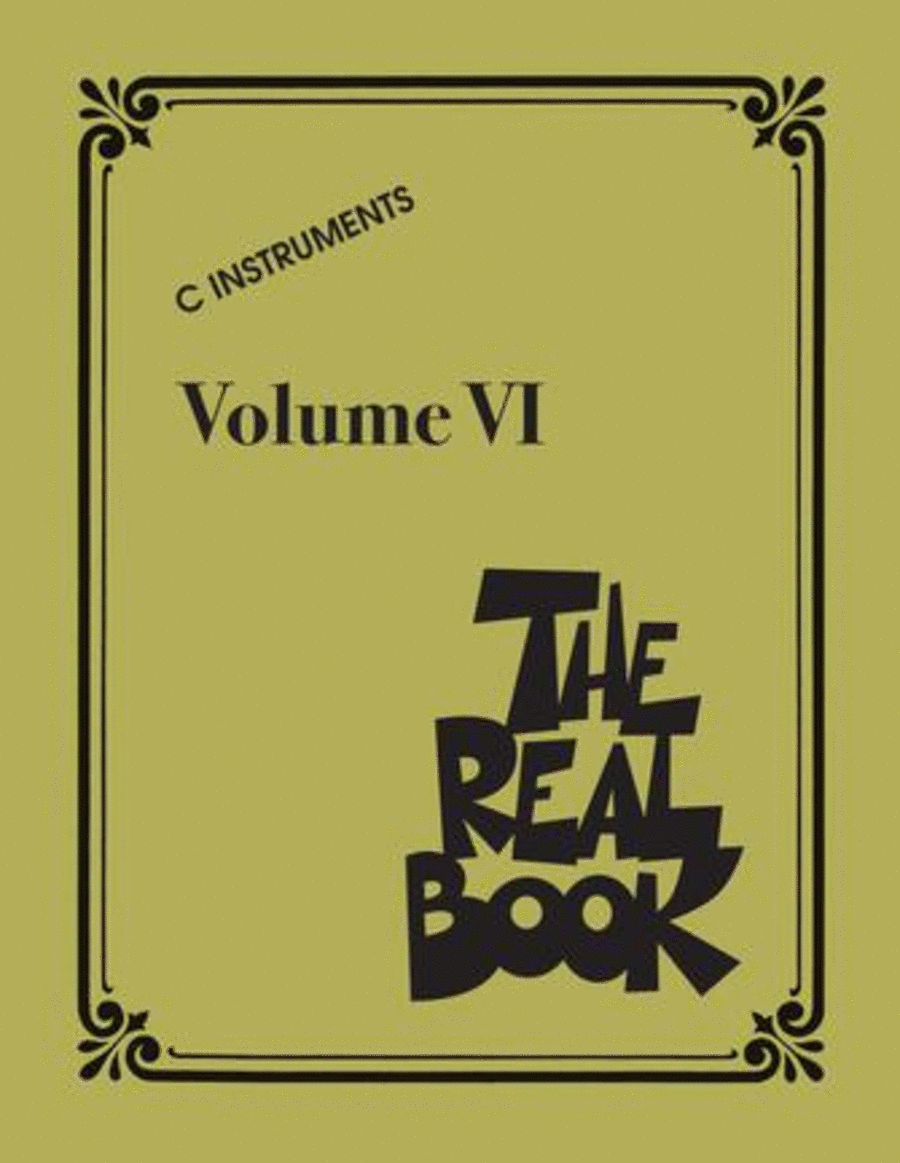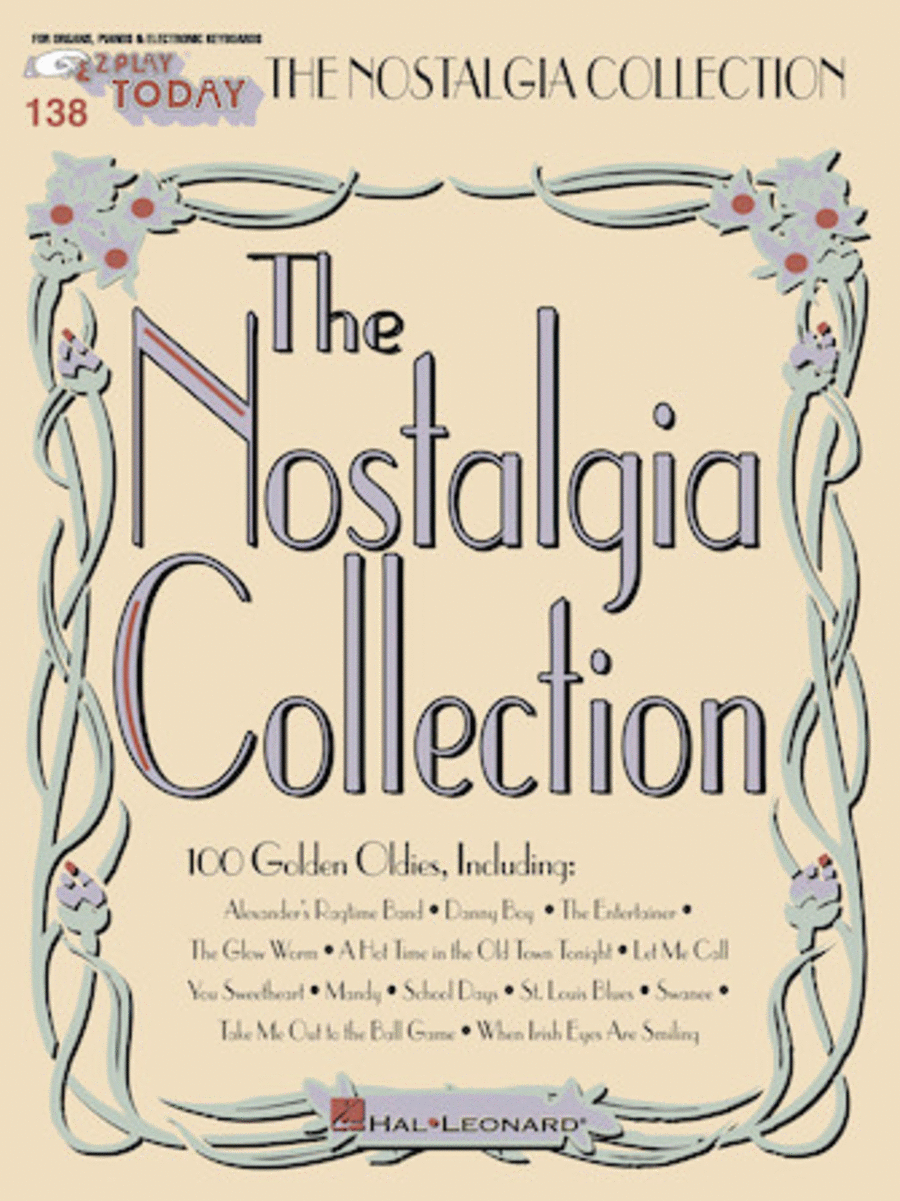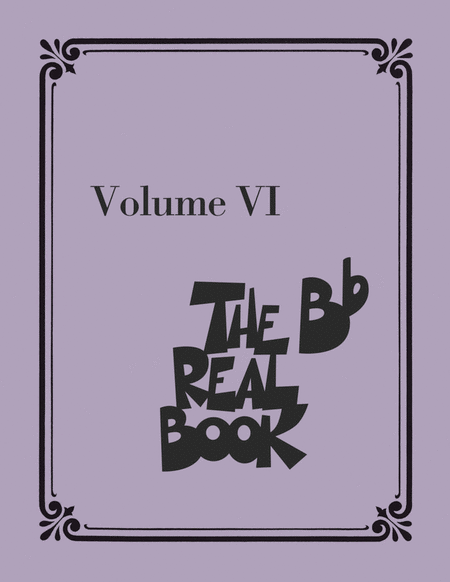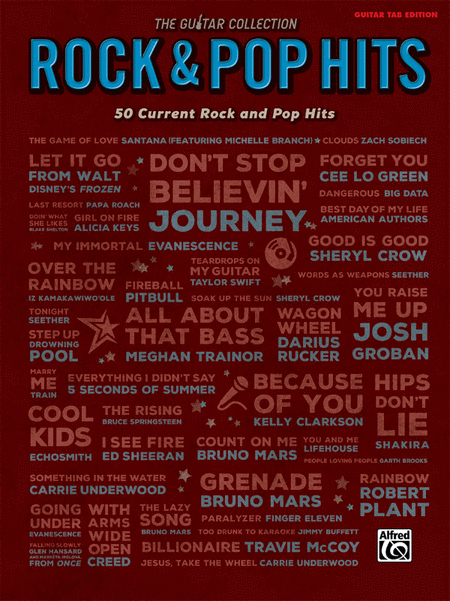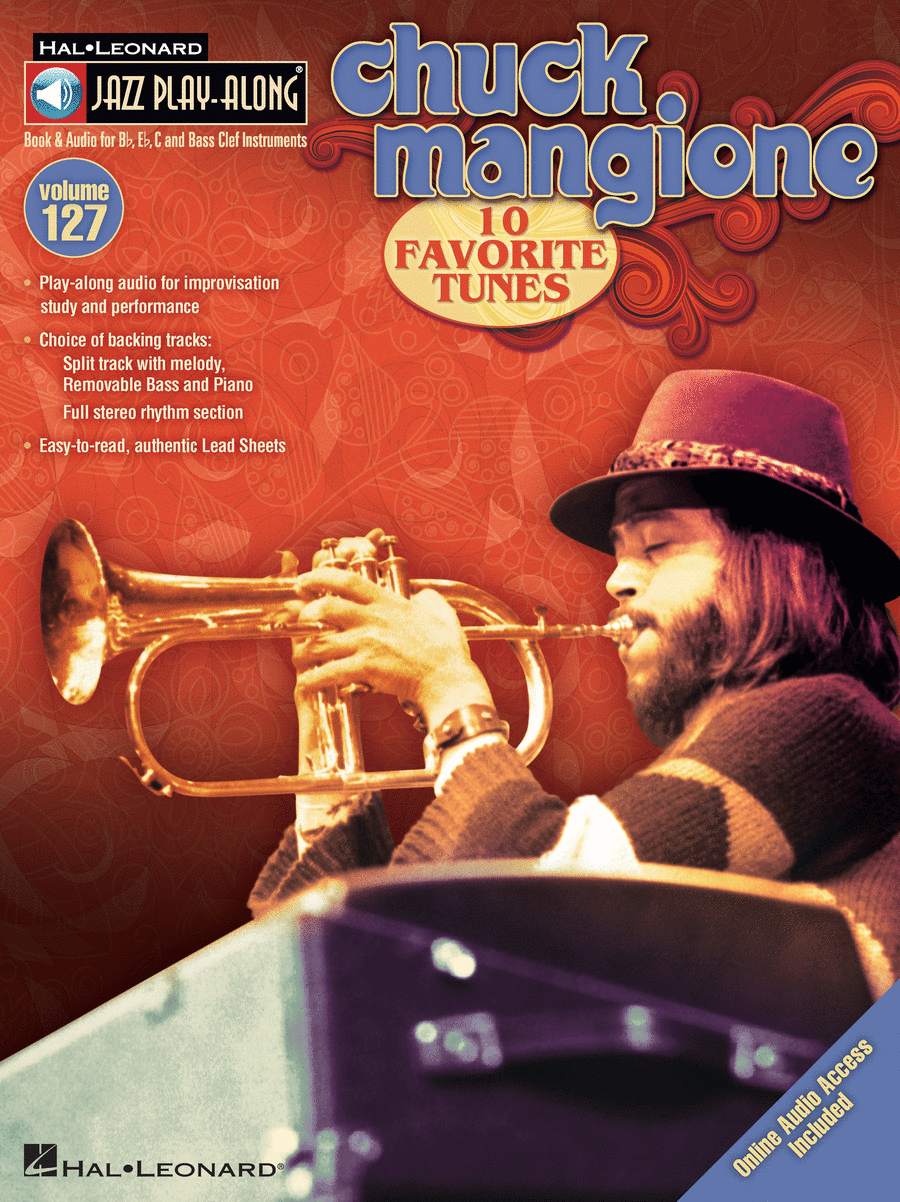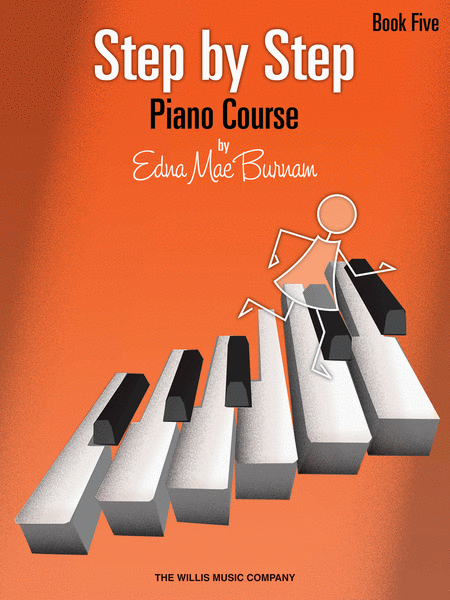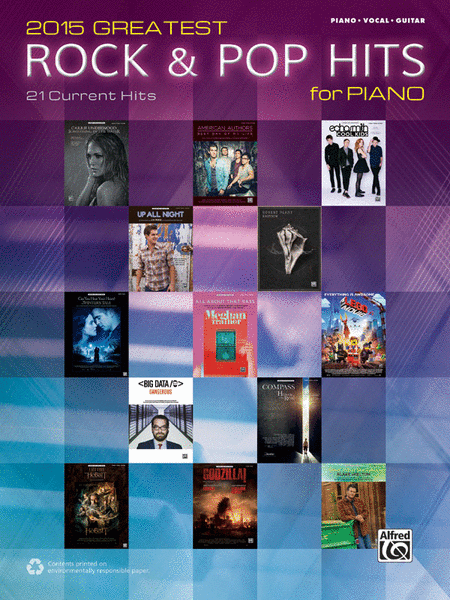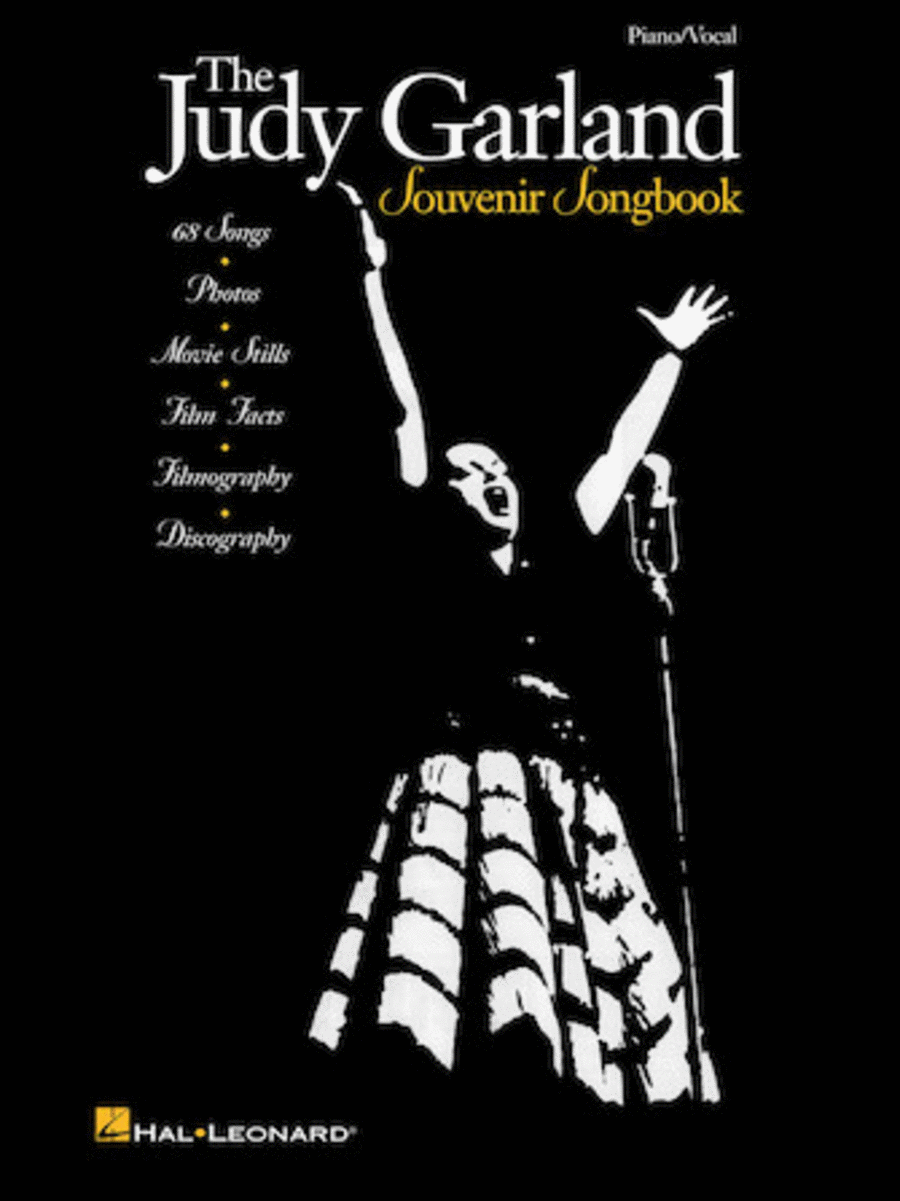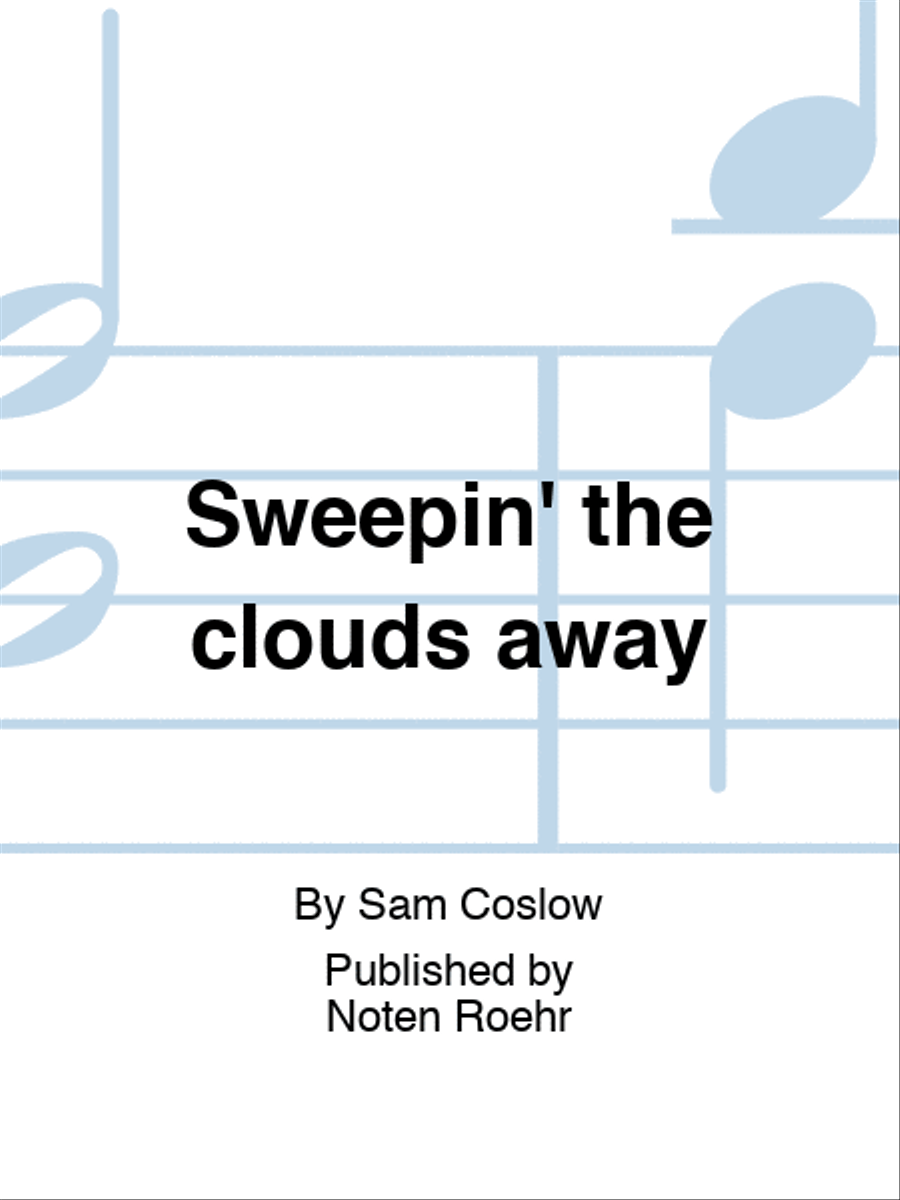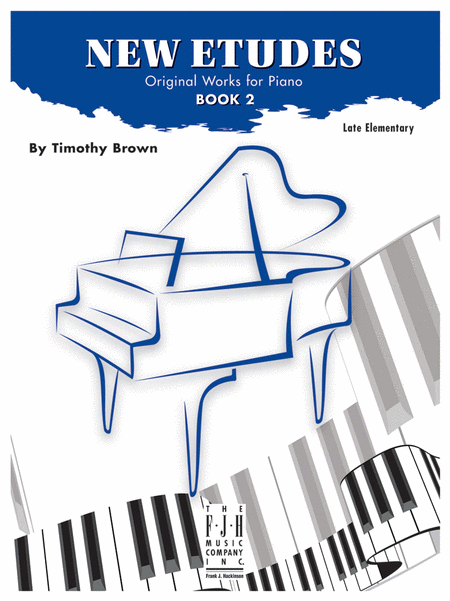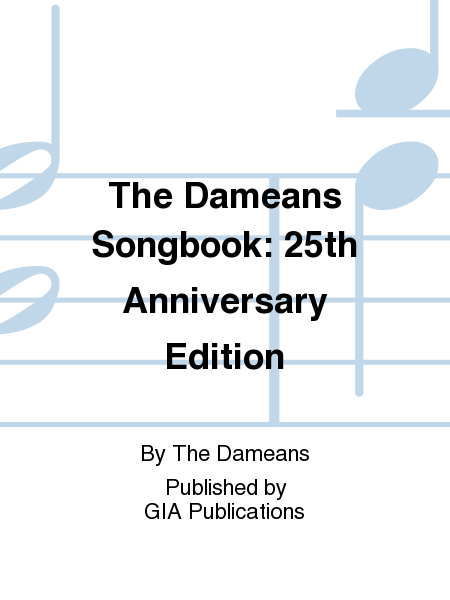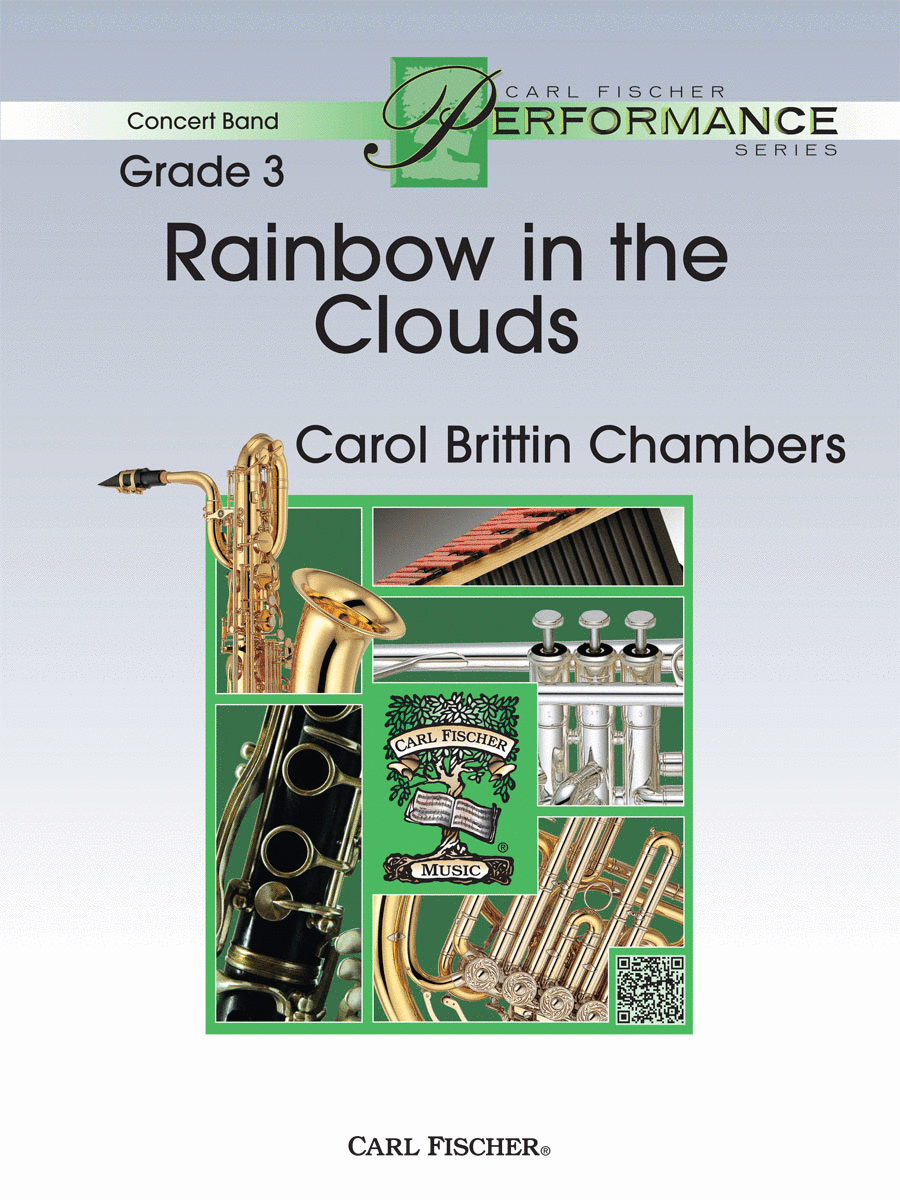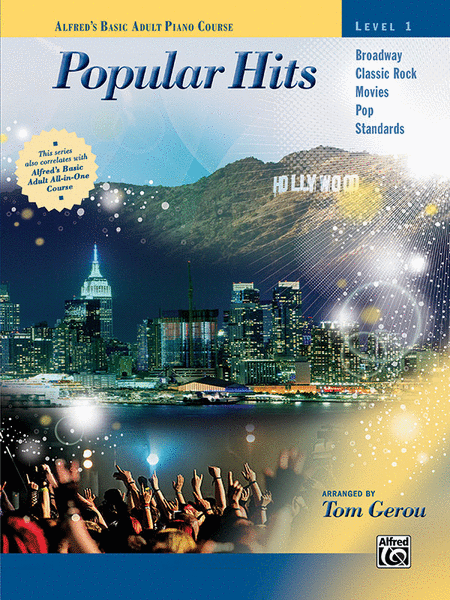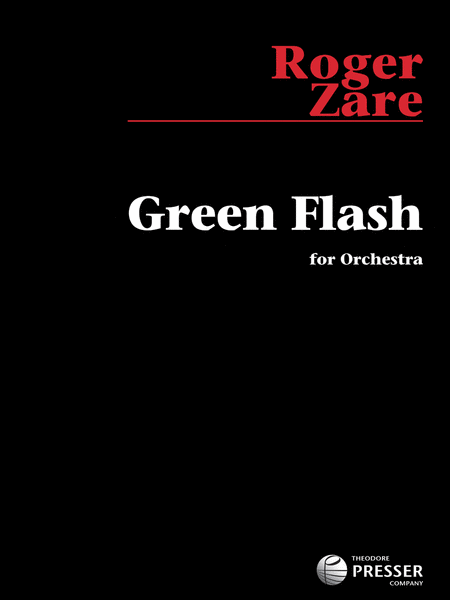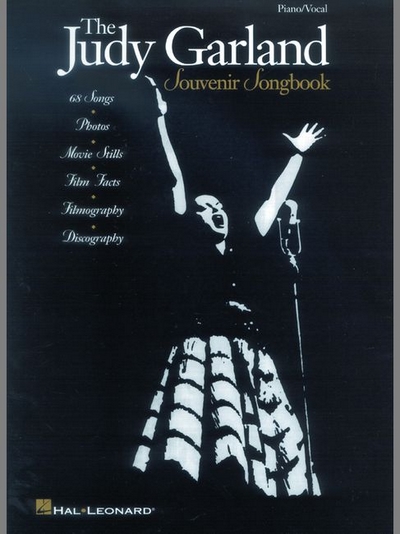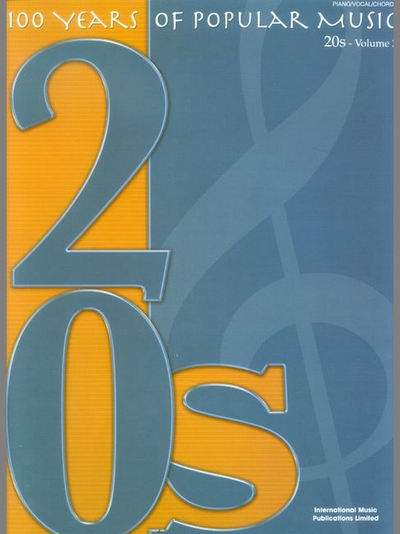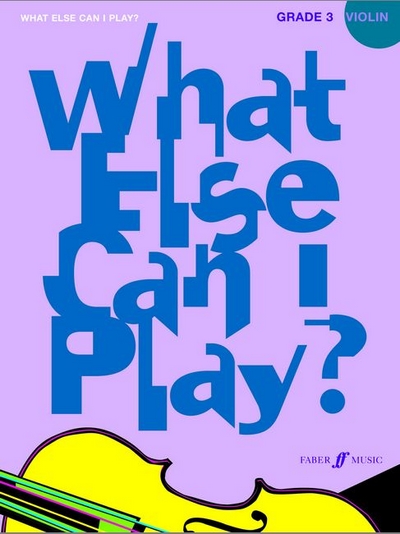Band Bass Clarinet, Bassoon, Bells, Clarinet 1, Clarinet 2, Clarinet 3, Euphonium, Euphonium T.C., Flute 1, Flute 2, Horn 1, Horn 2, Marimba, Oboe, Percussion, Suspended Cymbal, Timpani, Triangle, Trombone 1, Trombone 2, Trumpet 1, Trumpet 2 and more. - Grade 3
SKU: CF.CPS224F
Composed by Carol Brittin Chambers. Concert Band (CPS). Full score. With Standard notation. 12 pages. Carl Fischer Music #CPS224F. Published by Carl Fischer Music (CF.CPS224F).
ISBN 9781491153185. UPC: 680160910687.
Rainbow in the Clouds is based on an old traditional spiritual, possibly an African-American song from the 19th century, entitled God Put a Rainbow in the Clouds. Composer Carol Brittin Chambers was inspired by poetic Maya Angelou to create of setting of this beautiful song. It is lush and beautiful throughout and will highlight the musicianship of your students. This would serve as a welcome change of pace piece on your program for concert or contest.
Rainbow in the Clouds was commissioned by the Pflugerville Middle School Wind Ensemble in Pflugerville, Texas, directed by Shauna Satrom. The piece premiered in May 2017, in memory and celebration of Luis Ham, who was an Assistant Principal at Pflugerville Middle School.This piece is based on an old traditional spiritual, possibly an African-American song from the nineteenth century, entitled God Put a Rainbow in the Clouds. The first time I heard reference to this song was in a Maya Angelou video, in which she sings a portion of it: âWhen it looked like the sun wouldnât shine anymore, Oh, God put a rainbow in the clouds.â In the video, Dr. Angelou honors those who have demonstrated kindness to her in the past, and she suggests that we all try to be a blessing to others. The Pflugerville community believed that Mr. Ham, with his positive outlook, was definitely a ârainbow in the cloudsâ for other people.The piece begins with a full ensemble introduction, followed by a woodwind treatment of the first verse with a fairly reserved tempo and straight eighth-note rhythm. When brass pick up the melody on the second phrase, we start to hear the song more like the original spiritual, with dotted-eighth, sixteenth rhythms. The middle section of the piece at m. 22 begins to move at a slightly quicker tempo, and the mood becomes lighter. This section becomes a call-and-response between a euphonium solo and upper woodwinds. The final section of the piece involves everyone playing together joyously and full, eventually winding down with two more solo statements in flute and euphonium.Note to the Conductor:Use this piece to introduce or reinforce the following musical concepts:Lyrical, expressive playing varied stylesSolo responsibilitiesKey changes, tempo changes.
Arr : Concert bandPublisher : Carl Fischer $14.00 - See more - Buy online
$14.00 - See more - Buy online
 (AMERICAN COMPANY)
(AMERICAN COMPANY) 